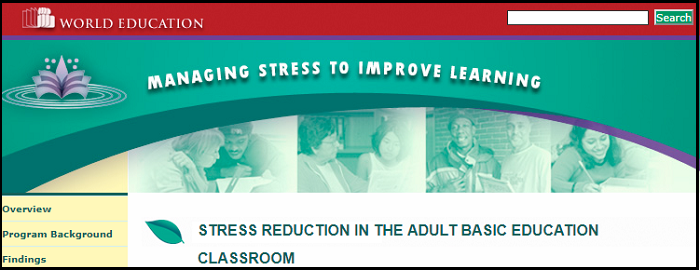Mental Health
Recent Newsletter Articles

May is Mental Health Awareness Month
Does your student show any of the following symptoms – sad, isolating, trouble focusing, difficulty sleeping or sleeping too much? If so, they may be struggling with a mental health challenge. Read More

Universal Design for Learning Principles in Action
The “Altered Shoes and Life Journey Project” utilizes the arts to enable immigrant and refugee students to create visual metaphors that reflect their personality and life experiences - and helps them process those experiences. Read More

TABE/CASAS Accommodations
Does your student have dyslexia? Mental health challenges? A physical or chronic health condition? ADHD? If you answered yes to any of the above, the student may qualify for TABE/CASAS testing accommodations. Read More

Managing Stress to Improve Learning: A Self-Management Resource
Some of the biggest obstacles that our adult learners face are often not academic, but social and emotional in nature. The Managing Stress to Improve Learning project has an array of resources to help teachers create safe, stable classrooms and promote positive mental health and stress reduction techniques. Read More

Free Online Professional Development Courses
Access the Minnesota Literacy Council's FREE online courses for ABE teachers and staff! The courses are self-paced, allowing participants to go through them from beginning to end, or to pick and choose the modules in each course that are the most pertinent to their professional development needs. Read More

Managing Holiday Stress
Poorly managed stress can impact peoples’ mental and physical health. Prolonged unresolved stress can cause cortisol (a hormone produced by the adrenal glands in response to stress) to rise. Too much of this chemical lowers immunity and can cause heart disease, high blood pressure or stroke. Read More